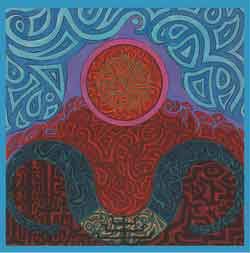Who is Carl Jung?

Carl Gustav Jung (1875-1961) was one of the pioneers of modern depth psychology and psychoanalysis. Born near Basle, and working mostly in Zurich, Switzerland, he first became a physician and then entered the emerging field of psychoanalytic psychiatry. Through his personal experience, his work with patients, and copious research, Jung developed ideas and methods of inquiry that have deepened and broadened our understandings of personality, psychodynamics, and the shaping energies of social history.
Over time, his ideas and methods of investigation have profoundly influenced the humanities, the arts, psychotherapy, religious studies, and many other fields. Many of Jung’s concepts have entered the mainstream of our language and culture: complex, archetype, persona, shadow, introvert, extravert, typology, collective unconscious, and others.
Jung believed that most of our questions, most of our sufferings, arise from the distresses of the human “soul,” which is the original meaning of the Greek word psyche. His work invites a new form of dialogue between ego consciousness and the “soul,” the latter being approachable only through our effort to understand our symptoms, our inexplicable life patterns, our compensatory dreams, and so on. This dialogue serves as a form of psycho-spiritual enlargement in which one is able to contain more opposites rather than be split by them.
Jungian analytic work does not remove one from the world, but brings a more differentiated consciousness to bear for participation in intimacy, parenting, social relationships, and creative responses to the challenges of life. Jungian psychology obliges an on-going discernment of personal authority from amidst the cacophony of claims upon our lives, and a reality-based move toward living that authority in respectful but more authentic relationship to others.
Jung’s concept of the collective unconscious describes how the timeless realm of the human psyche links us to our ancestors, and shapes our culture and our personal responses to the demands of daily life. His work is a summons to personal accountability in the face of the complexities of life. While wholly compatible with a secular culture, Jung also notes that our choices and their consequences constitute an operating spiritual perspective, a mode of life that may increasingly lead to a more meaningful journey. Jungian psychology invites a deepened dialogue: with oneself, with others, with collective society, with history, and with whatever transcendent energies move us and move history.
MAIN TERMS AND CONCEPTS
 Jung Lexicon: A Primer of Terms & Concepts by Daryl Sharp, M.A. Jungian Analyst
Jung Lexicon: A Primer of Terms & Concepts by Daryl Sharp, M.A. Jungian Analyst
C. G. Jung died in 1961, without ever having presented a systematic summary of his psychology. For the past thirty years his ideas have been explained, explored and amplified by thousands of others, with varying results.
Jung Lexicon takes the reader to the source. It was designed for those seeking an understanding of relevant terms and concepts as they were used by Jung himself. There are choice extracts from Jung's Collected Works, but no references to other writers.
Jung Lexicon is not a critique or a defence of Jung's thoughts, but a guide to its richness and an illustration of the broad scope and interrelationship of his interests.
Informed by a close reading of Jung's major writings, Jung Lexicon contains a comprehensive overview of the basic principles of Jungian psychology. The implications and practical application of Jung's ideas are well covered by other volumes in this series.